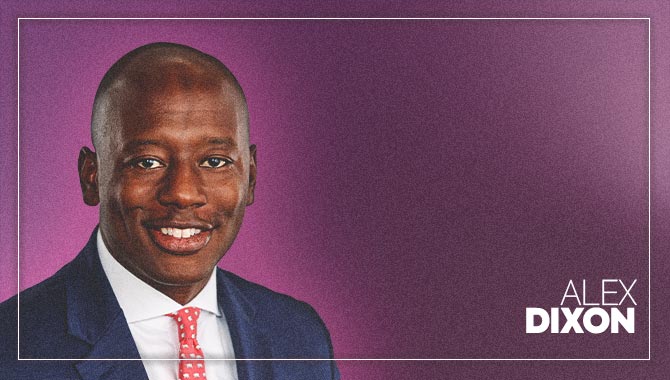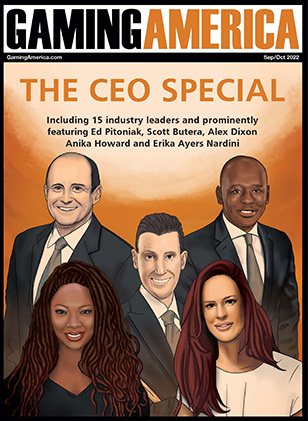
Dubuque, Iowa is a small-sized city that falls at that point on the Mississippi River where, if you’re looking east, Wisconsin becomes Illinois. The place has known its fair share of vicissitudes since Europeans staked a claim there in 1785 in the form Quebecois pioneer Julien Dubuque. River traffic was the prime mover of the economy, and its fortuitous location allowed it to become a locus of regional manufacturing. Being Iowa – the beating heart of the rural Midwest – food production was also a major pillar of the economy. By the end of the 19th century, it was among the one hundred largest urban agglomerations in the entire United States. Things were humming along nicely until the second half of the 20th century, when deindustrialization and the Farm Crisis of the early 1980s undermined the economic ecosystem. Businesses started shuttering, the population declined. Dubuque – like many communities in rural America – was facing an existential crisis. It was in need of a savior.
Into this dire state of affairs came the Dubuque Greyhound Park & Casino. Located on Captain Schmitt Island, just off the Mississippi River, it is an entity spurred open by the citizen-representing Dubuque Racing Association, kept licensed by the grace of the people’s vote, and completely owned by the residents of Dubuque. It is a non-for-profit, community casino – completely serving the city – and there is only one other like it in the entire US (Prairie Meadows Casino, Racetrack & Hotel, also in Iowa).
It opened in 1985. The year before, the Iowa State Legislature, in an effort to address the economic crisis, had passed the Pari-mutuel Wagering Act, which permitted the opening of horse and greyhound racetracks across the state. Things moved quickly from there. For one, the $8m dollar bond which city voters had approved to finance the venture was paid back in 1991, 14 years ahead of schedule. Upon a $33m expansion, table games were introduced in 2005, turning the facility into a casino proper (2022 will be the last year greyhound races will be held). A 116-room Hilton Garden Inn was also added. In 2017, it was renamed to the rather sharper sounding Q Casino.
All the income from Q Casino goes back into Dubuque. For this 60,000-person city, that’s no trifling detail: $20m in free cash flow and $12m in distributions going straight to the community. That’s one-third to the city general fund, another third to local non-profits, and the final third reinvested into the island on which the casino sits. The money helps people, whether it be the school funded for at-risk youths, the new fire station, or the property taxes that are kept low, the better to encourage development of local industry.
“If you’re the government seeing where wealth is created, and the equity goes back to the people, this model particularly works.”
These are the words of Alex Dixon, CEO of the Dubuque Racing Association, and a man with as interesting a backstory as that of the casino he runs.
As an African American, Dixon is an anomaly in the C-suites of gaming institutions across the land. The unfortunate reality of this country's experience, of course, has seen people of color largely excluded from the top echelons of business. In fact, Dixon is only the third black person to hold the top job at a casino in the nation’s history. To hear of how he got to these heights – and the story of his parents, whose experience provided the foundations of his later success – is to learn of the progress that African Americans have made in this country since the end of the Second World War.
As a third-generation local in a town with a short memory span, Dixon’s Las Vegas bona fides are beyond reproach. This is a city whose history is also intimately connected with the profound changes of the postwar era, having largely emerged out of the desert from the 1950s on. That’s when Dixon’s grandmother moved there from Tallulah, Louisiana – “She was the first to leave the plantation, if you will.” But, seeking a better life than what she had known to that point, she did not arrive in some post-racial utopia. Dixon continues, “When she arrived in Las Vegas, she could not walk through the front door of a casino. When she arrived to fully participate in the American dream, it said, you’re not welcome here.”
His father, also from the Deep South, arrived in Vegas thanks to the US Air Force, which stationed him at its Nellis base just north of the city. After he was discharged, he went to work at the Flamingo, where he, too, had to start at the bottom of the ladder, working first as a porter and then as a barback.
But change was in the air. The 1950s saw the Civil Rights Movement forcefully assert the rights of black Americans, a movement that culminated in 1965, when Lyndon Johnson signed the Civil Rights Act. Vegas was not unaffected. African Americans were allowed on the casino floor from 1960, after a deal was brokered by local honcho Hank Greenspun (though largely thanks to the heavy-handed encouragement of Frank Sinatra, an ardent anti-segregationist). Dixon’s father moved up the ladder, becoming a bartender in 1971, after the Federal Government sued the gaming industry for violations of civil rights. Moving further up, he would go on to leave the world of hospitality all together and become a parole officer.
The younger Dixon was the beneficiary of this progress. Born in 1980, he was the first in his family to attend an integrated elementary school. “I grew up in the suburbs of Las Vegas knowing what it’s like since birth to understand that, ‘I am equal to everyone else and have everyone else rooting for me.’ I know what inclusion is. I know what a level playing field looks like.”
At high school in Vegas he found himself drawn to historically black colleges and would go on to attend Howard University in Washington DC. Here, he played running back, was Mr. Howard University (an actual title), and began doing summer internships in the world of finance, in New York City. His junior year internship at Goldman Sachs led to a job after graduation. As an analyst specializing in mergers and acquisitions, he wanted to learn about business and, in so doing, would spend a year in New York, a year in London and a year in Los Angeles.
But it wasn’t the single-minded pursuit of wealth that led him down this track. Dixon sees business for someone of his background as a vessel for change in a systemically racist society. “I quickly realized that business allows you to drive change while politics, though a tool, moves at a snail’s pace… I not only want to represent, but also want to open doors for people who have been historically unrepresented in the American landscape.”
From his posting in Los Angeles, his hometown – and its marquee industry – began beckoning. But a former analyst at Goldman is not going to enter the world of casinos the same way his parents had. “All my experience growing up was, my family were the porters, the cooks, the maids, the dealers. I want to work in Vegas, but this is a big industry, and I don’t want to work valet.”
He got a job at a boutique investment firm, raising money to build resorts. From here, he climbed the ladder at the majors, working mostly in a finance capacity: planning at Harrah’s Las Vegas; debt restructuring at Caesars Entertainment. He would get postings at locations across the country: four years as VP and Assistant General Manager at Horseshoe Baltimore; General Manager at MGM Springfield in Massachusetts. At last, he again returned home, becoming President and COO at Circus Circus. This would last until MGM Resorts International sold Circus Circus. He stayed in Vegas until a headhunter reached out to him in 2021 with an offer from Q Casino in Dubuque, Iowa. “What’s Q Casino?” he asked. “Where is Dubuque? Where is Iowa?”
By this time his role in the industry had been established, and while in his hometown he is the ‘black executive,’ outside of it he is the ‘Vegas executive.’ He has embraced his role in the corn belt with rigor and is now focused on reinvesting casino earnings into the island. He wants to see this location – a drive of just three hours from Chicago – become a major tourism draws in the region. Indeed, he sees the Q Casino experiment – a non-profit casino serving the community – as one that rural communities, fallen on hard times, can look up to. Dubuque has seen a renaissance thanks to casino traffic. “I think any state legislature in new markets that are opening up should look to our model and come pay us a visit.”
Still, Dixon hasn’t forgotten where he came from, where his family came from. He remains fully cognizant that his life is a paradigm for the progression of inclusivity in the gaming industry. “This is a totally different America than the one I grew up in.” He finishes, “I’m the first in my family’s lineage to enjoy the full benefits of what our country espouses to be."

